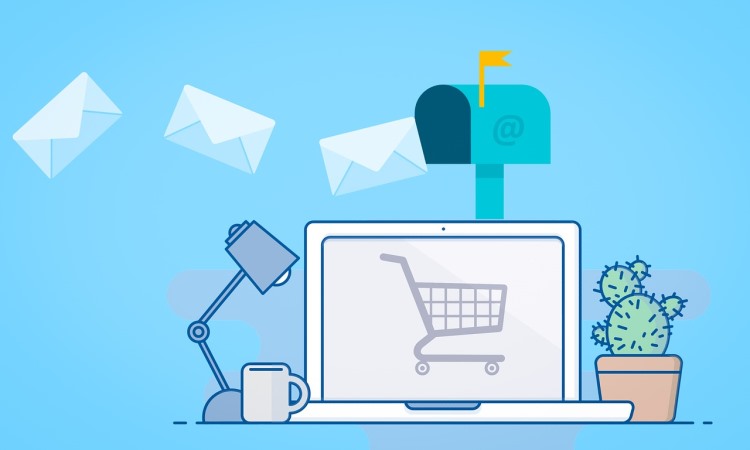In today’s digital age, having a robust and user-friendly ecommerce platform is crucial for businesses looking to succeed online.
Whether you’re a startup launching your first online store or an established company expanding your digital presence, hiring the right ecommerce development service is essential.
With countless development agencies and freelancers available, it’s important to know what to look for to ensure you make the best choice.
This article outlines key factors to consider before hiring an ecommerce development service, helping you make an informed decision that will set your business up for success.
1. Experience and Expertise
Industry Experience
Look for a development service with a proven track record in ecommerce. Agencies with experience in your specific industry will have a better understanding of your business needs and customer expectations.
Technical Expertise
Ensure the developers are proficient in the latest ecommerce technologies and platforms, such as Shopify, Magento, WooCommerce, and BigCommerce.
Check if they are certified developers for these platforms, as certifications can be a testament to their expertise.
2. Portfolio and Case Studies
Review Previous Work
Examine the agency’s portfolio to see examples of their previous ecommerce projects. Look for websites that are similar to what you envision for your business.
This will give you a sense of their design aesthetics, technical capabilities, and creativity.
Read Case Studies
Case studies provide detailed insights into how the agency has helped other businesses achieve their ecommerce goals.
They often include information about the challenges faced, solutions implemented, and results achieved, giving you a clear picture of the agency’s problem-solving skills and effectiveness.
3. Client Testimonials and Reviews
Seek Client Feedback
Read testimonials and reviews from past clients to gauge the agency’s reputation and reliability. Positive feedback indicates a high level of client satisfaction and trustworthiness.
Contact References
If possible, contact some of the agency’s past clients to ask about their experiences. This can provide valuable insights into the agency’s working style, communication, and overall performance.
4. Customization and Scalability
Custom Solutions
Your ecommerce platform should be tailored to meet your specific business requirements. Ensure the development service can provide custom solutions that align with your goals and brand identity, rather than relying solely on pre-built templates.
Scalability
Choose a development service that can build a scalable platform to accommodate your business’s future growth. This includes the ability to handle increased traffic, expand product catalogs, and integrate new features as your business evolves.
5. Design and User Experience (UX)
Intuitive Design
A well-designed ecommerce site should be visually appealing and easy to navigate. The agency should prioritize user experience (UX) and ensure that the design facilitates a seamless shopping experience.
Mobile Responsiveness
With the increasing use of mobile devices for online shopping, it’s crucial that your ecommerce site is fully responsive and optimized for mobile users. Check if the development service has experience in creating mobile-friendly designs.
6. SEO and Digital Marketing Integration
SEO Best Practices
Search engine optimization (SEO) is essential for driving organic traffic to your ecommerce site. Ensure the development service follows SEO best practices, such as clean code, fast loading times, and optimized content, to improve your site’s search engine rankings.
Marketing Integration
Your ecommerce platform should integrate seamlessly with digital marketing tools, such as email marketing, social media, and analytics. This will help you track performance, engage with customers, and optimize your marketing efforts.
7. Security and Compliance
Secure Transactions
Security is paramount in ecommerce. Ensure the development service implements robust security measures to protect customer data and secure online transactions. This includes SSL certificates, encryption, and compliance with Payment Card Industry Data Security Standard (PCI DSS).
Legal Compliance
Your ecommerce site must comply with relevant laws and regulations, such as GDPR for data protection and consumer rights laws. Check if the development service is knowledgeable about these regulations and can ensure compliance.
8. Support and Maintenance
Ongoing Support
Post-launch support is crucial for addressing any issues and ensuring the smooth operation of your ecommerce site. Choose a development service that offers ongoing support and maintenance packages to keep your site running efficiently.
Quick Response Time
Ensure the agency provides prompt and reliable customer support. Quick response times are essential for resolving any technical issues that may arise and minimizing downtime.
9. Transparent Pricing
Detailed Quotes
Request detailed quotes from potential development services, outlining the scope of work, timeline, and costs involved. This will help you compare different options and understand what you are paying for.
No Hidden Fees
Ensure there are no hidden fees that could inflate the cost of the project. Transparent pricing helps you stay within your budget and avoid unexpected expenses.
Conclusion
Hiring the right ecommerce development service is a critical decision that can significantly impact your business’s success.
By considering factors such as experience, portfolio, client feedback, customization, scalability, design, SEO, security, support, and pricing, you can make an informed choice that aligns with your business goals.
Take the time to research and evaluate potential development services carefully, ensuring you partner with a team that can deliver a high-quality, secure, and user-friendly ecommerce platform tailored to your needs.






